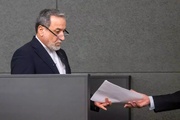On December 10, the team reported to UN Secretary General Ban Ki-moon that it had failed, and the countdown began to Kosovo’s independence.
It will be a bumpy ride, and many fear that it may end with renewed war in the Balkans. “Serbia will encourage a mass exodus from the (Serbian minority’s) enclaves (in Kosovo),” predicted Dukagjin Gorani, chief aide to Kosovo’s newly elected prime minister, Hashim Thaci. “They want to win over world opinion, and they know how bad it will look for Kosovo if BBC and CNN are showing convoys of Serbs on tractors leaving home.”
We have seen those pictures before, in 1998-99, although that time it was the Kosovars (Albanian-speaking Muslims) fleeing from Serbian army atrocities. Even then the Kosovars accounted for 90 percent of Kosovo’s two million people, but they had suffered decades of repression by the government in Belgrade. Serbs see Kosovo as the cradle of their nation, so when Kosovar guerillas attacked the local army garrisons in 1998 they reacted savagely, trying to frighten the majority population into flight.
About half the Kosovars did flee, but after two previous rounds of Serbian ethnic cleansing in Croatia and Bosnia the West had had enough of the Serbian dictator, Slobodan Milosevic. NATO launched a 78-day bombing campaign against Serbia in early 1999 that ultimately forced Milosevic to concede. The Serbian army withdrew from Kosovo, NATO troops took control, and the Kosovar refugees came home -- but almost half of the province’s 200,000-strong Serbian minority fled instead.
Now there are only about 120,000 Serbs left in Kosovo, and it is virtually certain that the Serbian government, which vehemently opposes Kosovo’s independence, will tacitly encourage the Serbs living in the more isolated enclaves in Kosovo to flee. Tragic images will fill the television screens once again, and the Balkans will be lucky to escape another round of violence.
But why is there a crisis over independence now? After all, the war was eight years ago. It’s happening because the pressure from Kosovo’s ethnic Albanian majority to break the province’s remaining legal link with Serbia was growing, and the West misjudged Russia.
The United States in particular assumed that the Serbs could be forced to relinquish their claim to Kosovo -- President Bush hailed Kosovo’s impending independence on his visit there last June -- and that the Russians would reluctantly accept the West’s lead as usual.
Wrong. The Kosovars, strongly backed by the United States, felt no need to compromise on their demand for early independence, but the Serbs turned out to have equally firm backing from Russia and were unwilling to compromise either. Moreover, the Serbs and the Russians have international law on their side.
Foreign military intervention to prevent a genocide, which is what NATO said it was doing in 1999, can be defended on moral grounds, and may even be legal if backed by the UN Security Council (which the 1999 intervention in Kosovo wasn’t, due to Russian and Chinese opposition). But partitioning a sovereign state without its permission, which is what is being done to Serbia now, is against the UN Charter, and would not be legitimate even if the Security Council did approve.
And if you can partition Serbia, then why can’t you also partition the province of Kosovo so that the northern bit around Mitrovica, where almost half of the remaining Serbs live, stays in Serbia? Why can’t you partition Bosnia, so that the 40 percent of the population who are ethnically Serbian (and live on lands that have now been “cleansed” of other ethnic groups) can unite with Serbia itself?
Why can’t you partition Cyprus, so that the Turkish minority get their own country? Why can’t you partition Spain or Romania or Russia, or anywhere that has a restive minority somewhere on its territory? This is why not only Russia, but also European Union members like Cyprus, Spain and Romania, are deeply unhappy about present U.S. and EU policy, and at least in Cyprus’s case will refuse to back it.
There is no good answer. Should the West leave the Kosovars in perpetual limbo, administered by UN bureaucrats and guarded by 16,000 NATO soldiers? No. Force them back under Serbian rule? Unthinkable and undoable. Partition Serbia and give Kosovo its independence, leaving the NATO soldiers there to protect what’s left of the Serbian minority and to stop Serbia itself from intervening? Maybe that’s the least bad option, but it’s still a thoroughly bad one.
And by the way, what the Kosovars, or at least a great many of them, really want is not independence. It is union with Albania. As a Kosovar student leader said earlier this month at a pro-independence demonstration in the capital, Pristina, “independence is itself a compromise.”
(Dec. 23 Tehran Times Opinion Column, by Gwynne Dyer)
MS/HG
END
MNA

























Your Comment